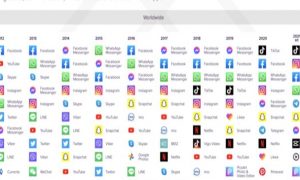How top leaders create engaged and effective teams as hybrid and remote work models become permanent.
As organizations reimagine their post-pandemic work environments, a powerful moment of opportunity and threat presents itself. This is a moment for leaders to think carefully and act decisively to create new work models that benefit team members. Organizations can take full advantage of this current opportunity and avoid being left behind by others who adapt better.
In PwC’s US Remote Work Survey, only 20 percent of surveyed employees wanted to return to the office three or more days per week once Covid-19 is no longer a major concern. This contrasts with the 70 percent of employers who wanted their employees in the office at least three days per week.
To tap into ideas for specific leadership solutions to this challenge, I spoke with Laura Berland and Evan Harrel, co-founders of the Center for Compassionate Leadership.
Laura and Evan develop leaders to strengthen their teams and organizations by leading through the compassionate lens of safety, connection, and belonging. “Compassionate leaders seek to promote the flourishing of their teams and remove organizational sources of suffering. Creating responsive solutions for these times offer a gateway to address organizational needs and employee preferences with compassionate leadership to create successful, engaged teams,” Berland told me.
Here are four of their top recommendations:
1. Gather data
Organizations should approach employees’ needs with the same discipline used for understanding markets and customers. Survey employees about their needs and preferences. Ask lots of questions, and then listen. If you want engaged, flourishing employees, the culture you design must be responsive to their actual needs.
Without a data-informed process, leaders leave themselves at risk of misunderstanding their team’s needs. Dacher Keltner has described this risk well in his book, The Power Paradox. Social intelligence, one of the most important skills that helps leaders ascend through the ranks, is weakened with the acquisition of power. In environments as fast-changing as this, basing decisions on evidence is particularly important.
2. Create an inclusive culture of belonging
Not only is this an opportunity to create a new work environment, but this challenge is also fertile ground to elevate practices of connection and belonging. Ask for, and welcome, everyone’s perspective. When you create an environment that is fully inviting to different opinions and different forms of expressing those opinions, creativity flourishes. Organizational research by McKinsey & Company shows significant business benefits of creating a fully diverse workforce.
3. Name the challenges and limits upfront
Creating mutually successful outcomes requires more than simply asking your team about their preferences. It also requires clarity about what isn’t possible. When you are clear about the non-negotiables, the suggested solutions that will come forth are more likely to be productive. If the data you gather shows a serious gap between team desires and organizational requirements, don’t be shy about naming that, and then asking for help to reconcile the difference. Be vulnerable. Be flexible. The collaborative problem-solving process will yield better answers today and greater long-term trust and creativity.
4. Be clear and purpose-focused with your decisions
As Evan Harrel told me, “Compassionate leaders provide clarity through the ways they communicate their decisions.” Connecting your organizational purpose to the decision provides two powerful benefits. First, it supports your team’s understanding of how you made your decision. Team members understand that everyone’s preferences or ideas cannot always be accommodated, but they do expect to understand why.
The second benefit to connecting your decision to your organizational purpose is that it gives you another opportunity to reinforce a larger message about your mission. Connecting your team to this purpose deepens their engagement and focuses everyone to pull in the same direction.
As we move forward into a hybrid/remote world, leaders are facing uncharted opportunities and challenges. Approaching these with the strength of compassionate leadership empowers organizations to adapt quickly and wisely to the dramatically changed market conditions. Most important, by recognizing and respecting team members, they will flourish in this new era along with your organization.













































